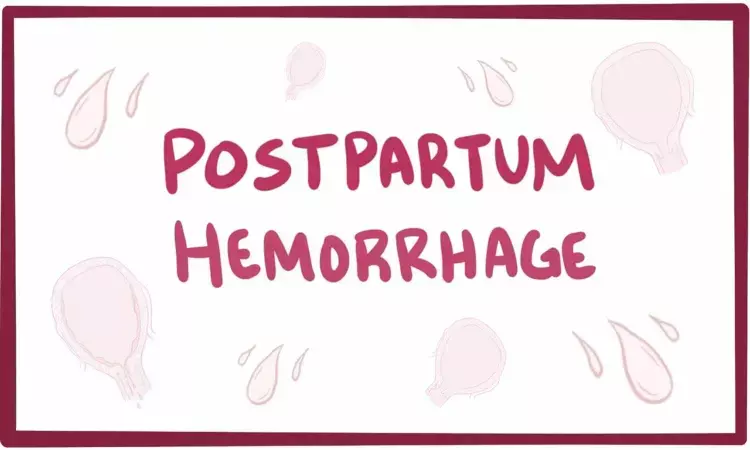- Home
- Medical news & Guidelines
- Anesthesiology
- Cardiology and CTVS
- Critical Care
- Dentistry
- Dermatology
- Diabetes and Endocrinology
- ENT
- Gastroenterology
- Medicine
- Nephrology
- Neurology
- Obstretics-Gynaecology
- Oncology
- Ophthalmology
- Orthopaedics
- Pediatrics-Neonatology
- Psychiatry
- Pulmonology
- Radiology
- Surgery
- Urology
- Laboratory Medicine
- Diet
- Nursing
- Paramedical
- Physiotherapy
- Health news
- Fact Check
- Bone Health Fact Check
- Brain Health Fact Check
- Cancer Related Fact Check
- Child Care Fact Check
- Dental and oral health fact check
- Diabetes and metabolic health fact check
- Diet and Nutrition Fact Check
- Eye and ENT Care Fact Check
- Fitness fact check
- Gut health fact check
- Heart health fact check
- Kidney health fact check
- Medical education fact check
- Men's health fact check
- Respiratory fact check
- Skin and hair care fact check
- Vaccine and Immunization fact check
- Women's health fact check
- AYUSH
- State News
- Andaman and Nicobar Islands
- Andhra Pradesh
- Arunachal Pradesh
- Assam
- Bihar
- Chandigarh
- Chattisgarh
- Dadra and Nagar Haveli
- Daman and Diu
- Delhi
- Goa
- Gujarat
- Haryana
- Himachal Pradesh
- Jammu & Kashmir
- Jharkhand
- Karnataka
- Kerala
- Ladakh
- Lakshadweep
- Madhya Pradesh
- Maharashtra
- Manipur
- Meghalaya
- Mizoram
- Nagaland
- Odisha
- Puducherry
- Punjab
- Rajasthan
- Sikkim
- Tamil Nadu
- Telangana
- Tripura
- Uttar Pradesh
- Uttrakhand
- West Bengal
- Medical Education
- Industry
Researchers identify genetic connection to postpartum hemorrhage

CHICAGO - Researchers have identified genetic mutations that appear to protect women from severe bleeding after childbirth, a leading cause of maternal death. A preliminary study of the findings is being presented at the ANESTHESIOLOGY® 2020 annual meeting.
DNA, which carries genetic information in cells, contain biological instructions. A genetic mutation, which is a permanent change in the DNA, can be beneficial, decreasing a person's risk for a disease or condition, or harmful, increasing that risk.
Previous research has suggested genetics may play a role in the risk of bleeding after childbirth, called postpartum hemorrhage, but specific genes associated with the risk have not been identified. In this study, researchers identified several genetic mutations that appear to be associated with a reduced risk for postpartum hemorrhage.
"This research suggests there may be biological mechanisms that are protective," said Vesela Kovacheva, M.D., Ph.D., lead author of the study and an assistant professor of anesthesiology at Harvard Medical School, Boston. "After further research, we may be able to design drugs that target these pathways to prevent or help treat postpartum hemorrhage."
Drawing from the UK Biobank, an independent nonprofit initiative of more than 500,000 people, the researchers compared DNA in 1,424 women who had postpartum hemorrhage to 4,272 women who had an uncomplicated childbirth. They identified five genetic mutations that were associated with the risk for postpartum hemorrhage. The common theme in all of these mutations is that they are found near genes associated with the immune system.
The research adds to the growing evidence that the immune system plays a role in a normal pregnancy and delivery. Once the genes that have been identified in the study are verified, women could eventually be screened to determine their risk for postpartum hemorrhage, Dr. Kovacheva said.
"These newly identified mutations - or differences in the structure of the DNA - may decrease the risk for hemorrhage, but we do not know why," said Dr. Kovacheva. "We don't know if the exact genes identified are involved or if those mutations affect other genes. Our next step is to study them further to learn more about how they work."
Hina Zahid Joined Medical Dialogue in 2017 with a passion to work as a Reporter. She coordinates with various national and international journals and association and covers all the stories related to Medical guidelines, Medical Journals, rare medical surgeries as well as all the updates in the medical field. Email: editorial@medicaldialogues.in. Contact no. 011-43720751
Dr Kamal Kant Kohli-MBBS, DTCD- a chest specialist with more than 30 years of practice and a flair for writing clinical articles, Dr Kamal Kant Kohli joined Medical Dialogues as a Chief Editor of Medical News. Besides writing articles, as an editor, he proofreads and verifies all the medical content published on Medical Dialogues including those coming from journals, studies,medical conferences,guidelines etc. Email: drkohli@medicaldialogues.in. Contact no. 011-43720751


